Menu
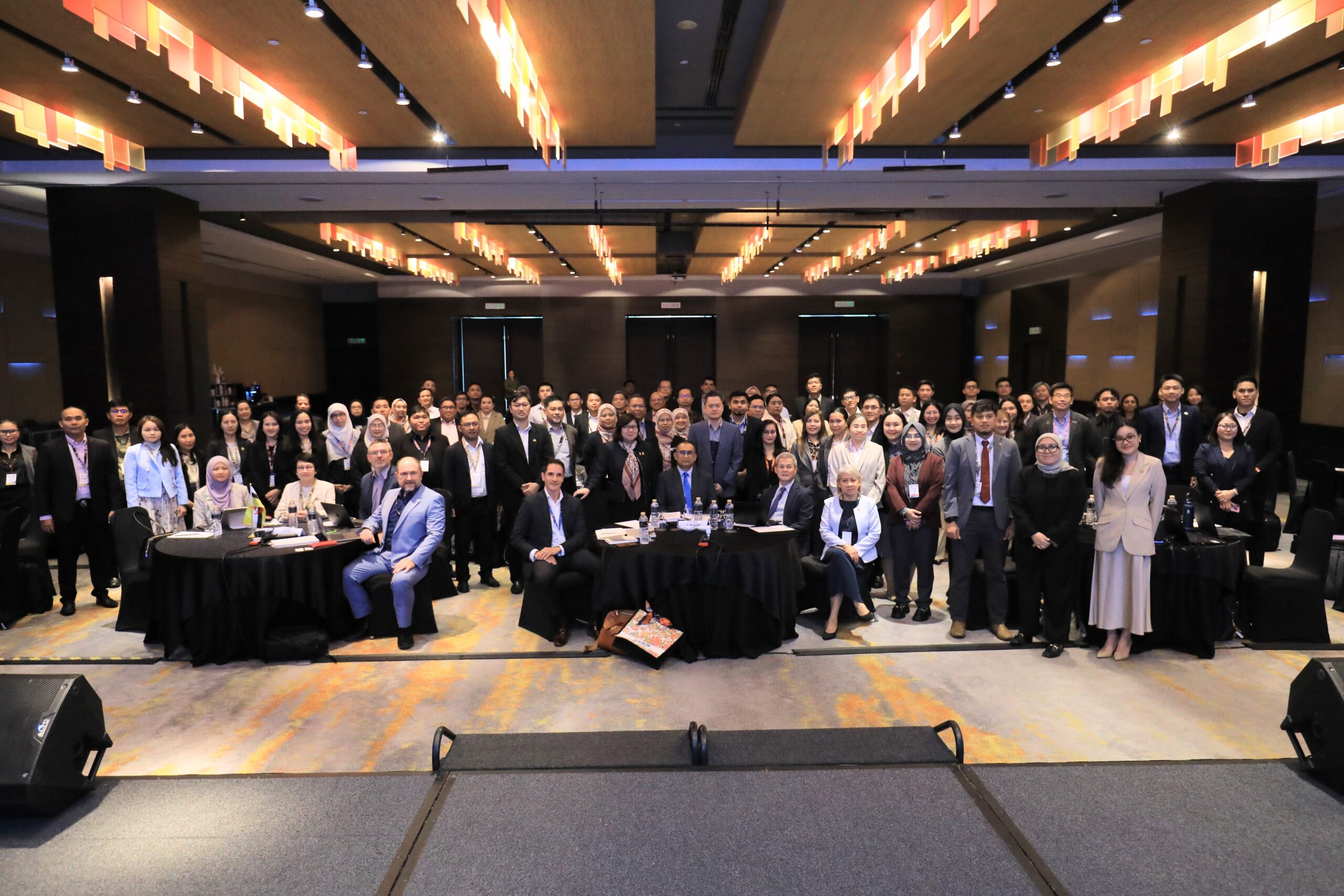
Photo 1. Group Photo of the Workshop Participants.
Penang, 3 June 2025 – The ASEAN Centre for Energy (ACE), in collaboration with the Ministry of Energy Transition and Water Transformation (PETRA) Malaysia, hosted the “Workshop on Strategic Renewable Energy Policy for ASEAN Energy Interconnection” in G Gurney Hotel, Penang, Malaysia, on 3 June 2025.
The event gathered approximately 100+ participants comprised of ASEAN Member States (AMS) delegates, regional experts, and development partners to explore collaborative pathways for accelerating the region’s energy transition. Achieving this strong regional participation was enabled by the support of key partners, including the World Bank, whose assistance was instrumental in bringing many AMS delegates to Penang. Key topics of discussion focused on aligning national priorities with regional cooperation mechanisms, including the ASEAN Power Grid (APG), Renewable Energy Certificates (REC), and biofuel trade.
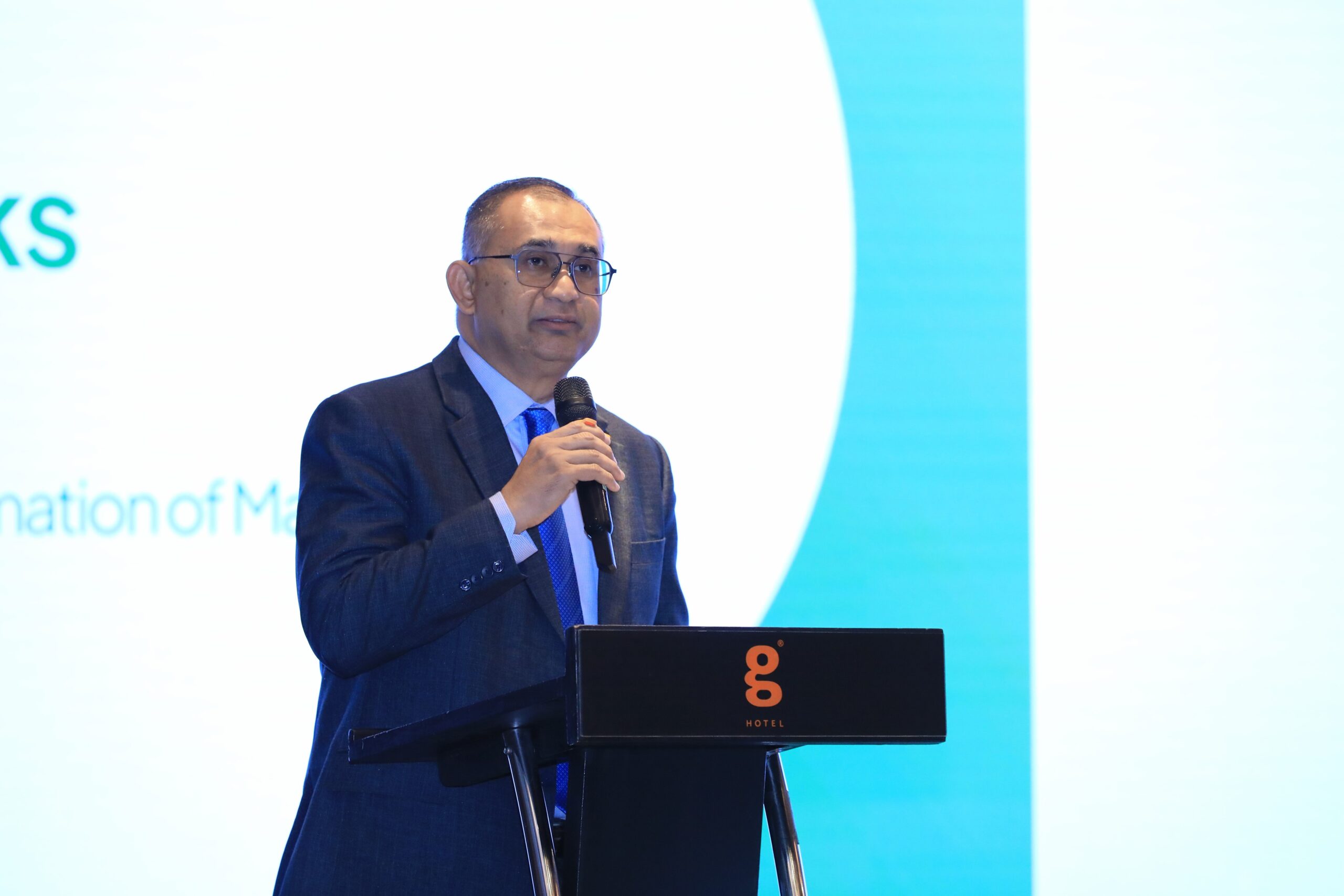
Photo 2. Asdirhyme Abdul Rasib, Undersecretary of Sustainable Energy at PETRA and RE-SSN Chair, delivering opening remarks.
(Photo by PETRA)
Asdirhyme Abdul Rasib, Undersecretary of Sustainable Energy at PETRA and RE-SSN Chair, commenced the workshop with opening remarks. He emphasised that the objective of energy transition requires more than national efforts—it also demands a coordinated regional approach built on trust. Hence, the workshop served as a platform to deliberate on both technical issues and policies for ASEAN’s renewable energy sector.
Session 1: Leveraging APG and Regional REC for Power Sector Decarbonisation
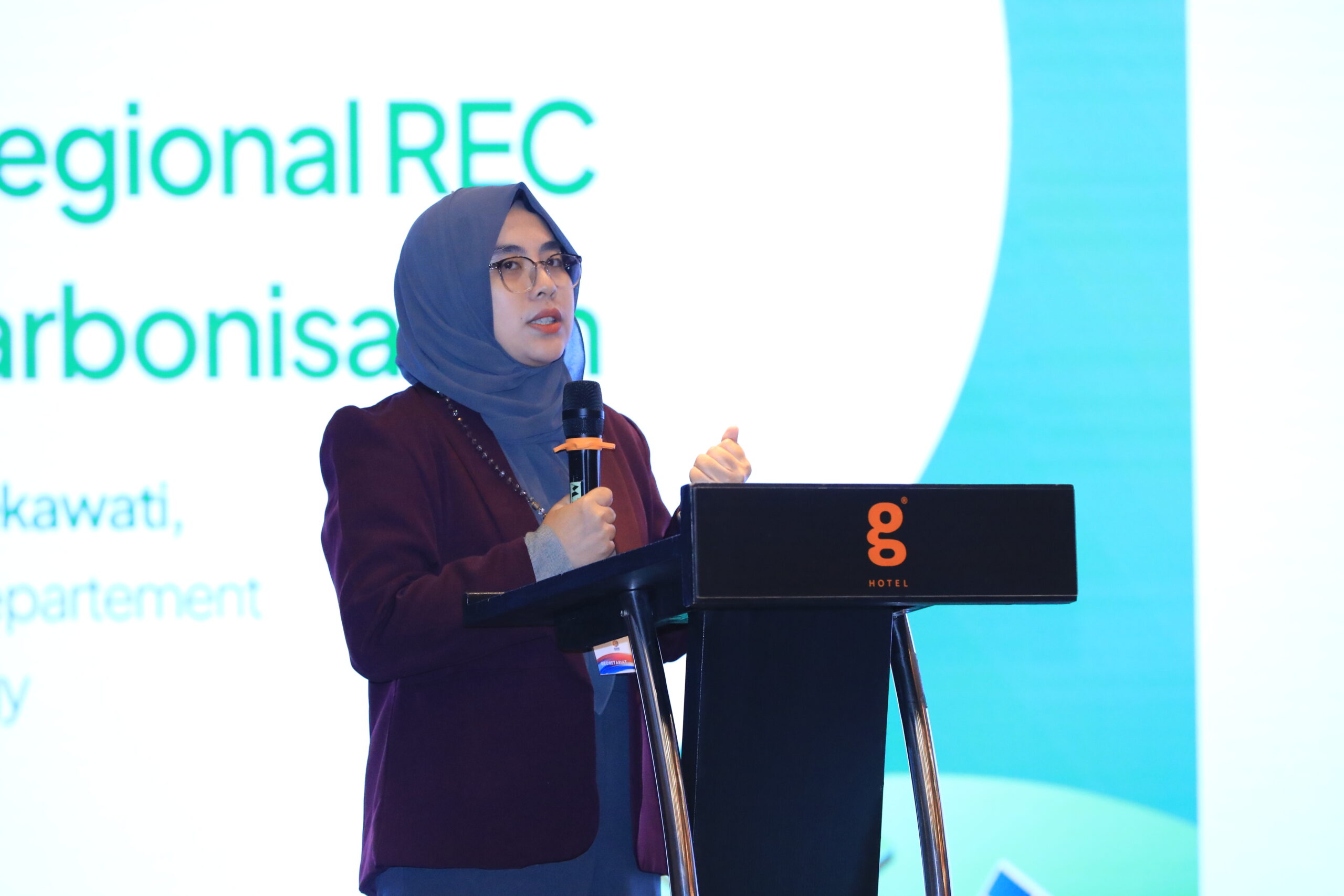 |
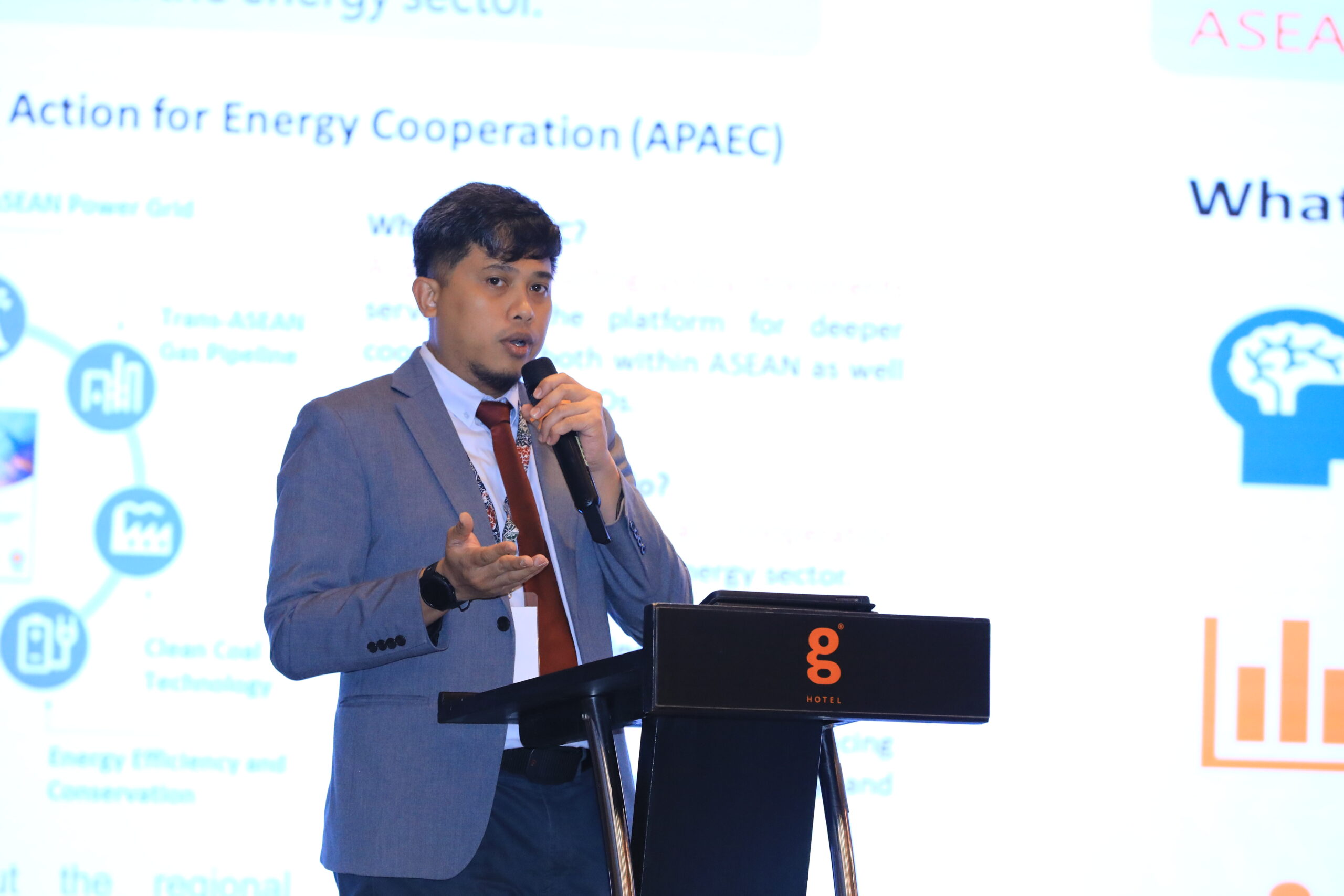 |
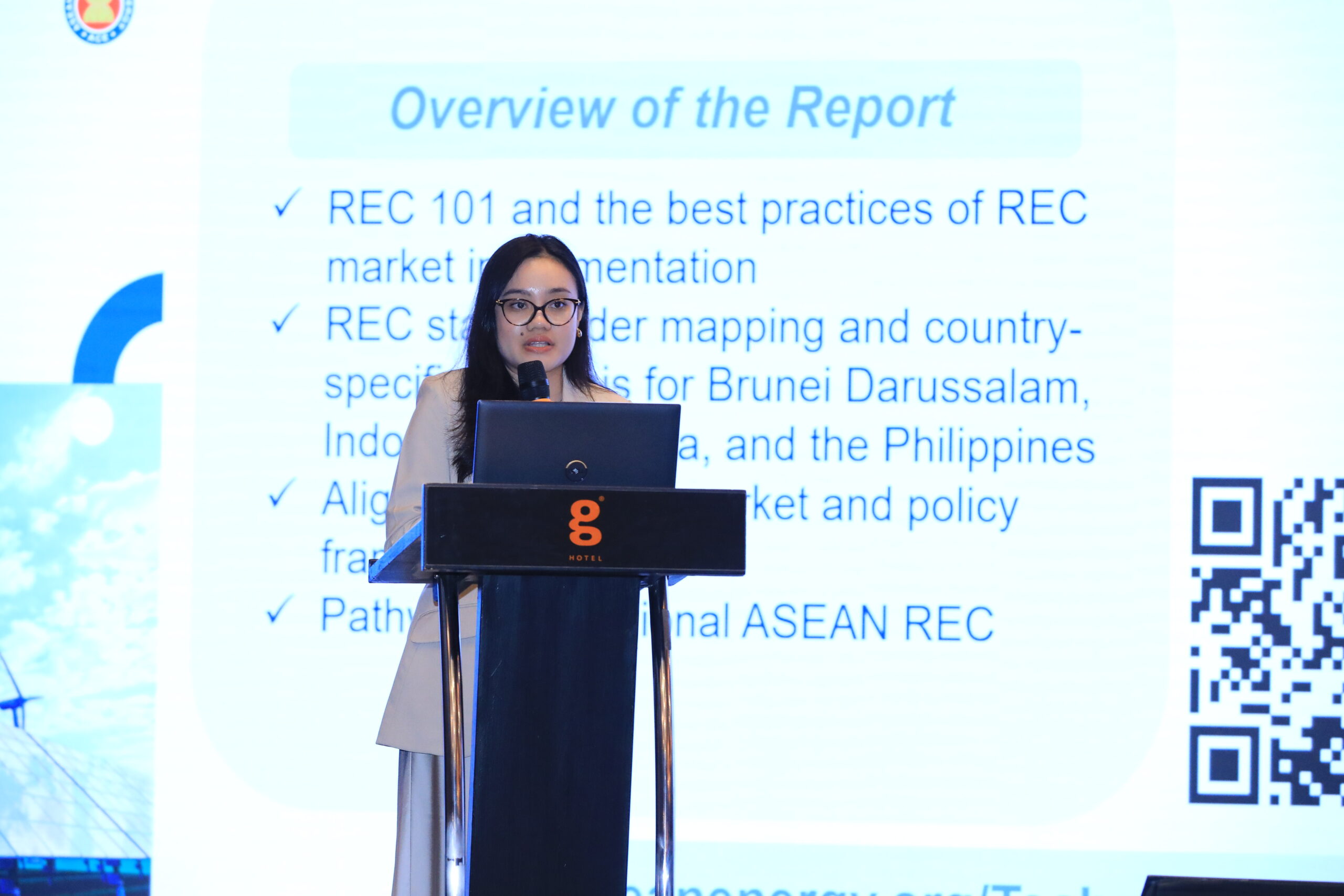 |
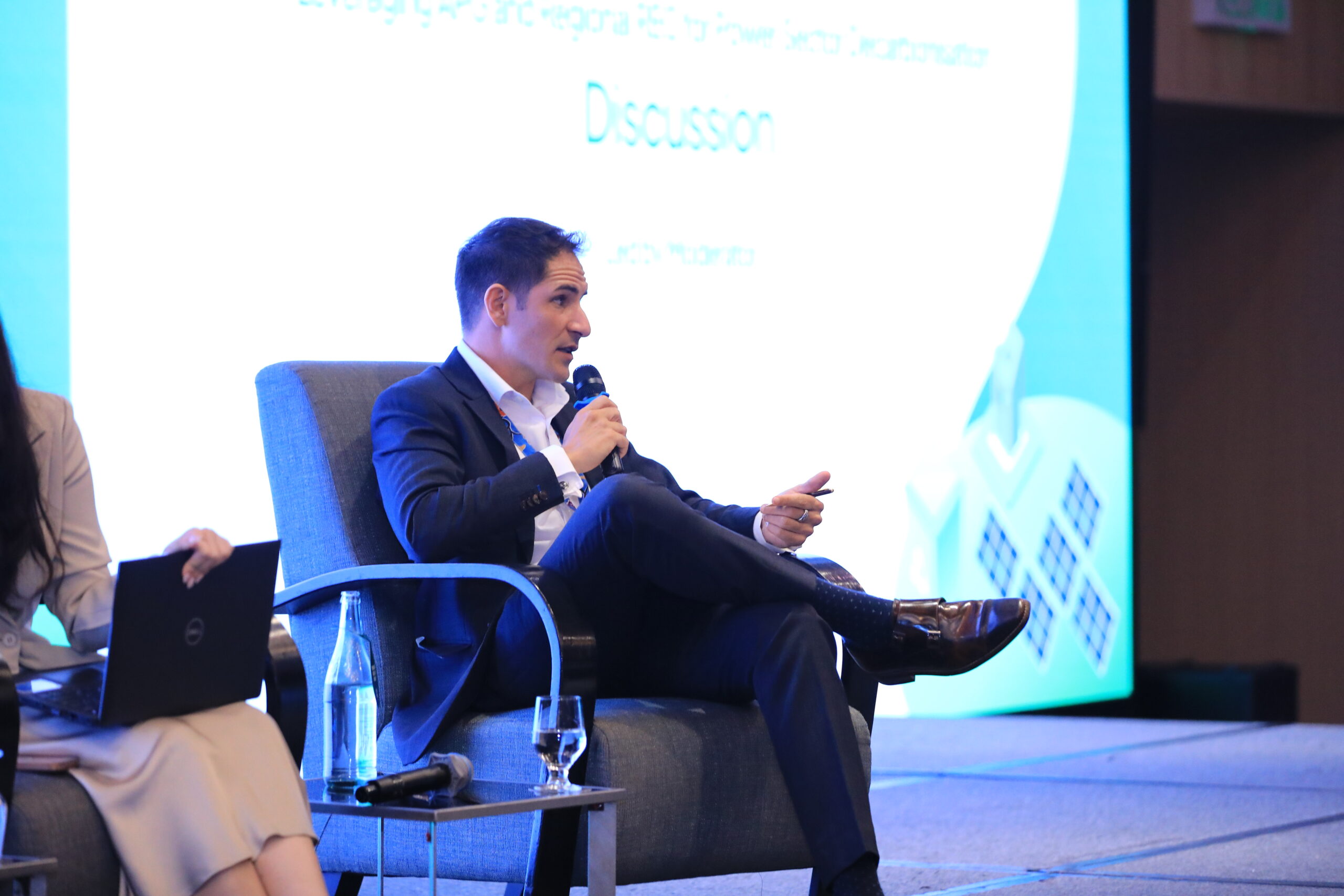 |
Photo 3. Monika Merdekawati, Senior Research Analyst of SRE Department at ACE (top-left), Prihastya Wiratama, Senior Officer of PIN Department at ACE (top-right), Veronica Ayu Pangestika, Research Analyst of SRE Department at ACE (bottom-left), and Roble P. Velasco-Rosenheim, Regional Director of APAC of I-Track and CEO of SuSca (bottom-right) during the panel discussion.
(Photos by PETRA)
Moderated by Monika Merdekawati, Senior Research Analyst of the Sustainable and Renewable Energy (SRE) Department at ACE, the first session focused on the twin pillars for power sector decarbonisation: enhancing the APG and developing a harmonised REC market. Prihastya Wiratama, Senior Officer of the Power Generation and Interconnection (PIN) Department at ACE, presented on the APG Priority Interconnectors and Post-2025 Workplan. He outlined the progress of development studies under the APG initiative and noted how an internationally recognised REC framework is required to support cross-border RE exchange.
The topic of REC and its relevance for ASEAN’s cross-border interconnection was further explored by Veronica Ayu Pangestika, Research Analyst of SRE Department at ACE, who provided an overview of the REC Market Assessment in ASEAN. As ASEAN’s REC market is rapidly expanding, growing 151% over the period of 2022-2023, a Regional REC Framework is being developed to harmonise standards and enable cross-border REC trade. This is crucial for unlocking the full potential of the APG, as it could influence and enhance the attractiveness of the ASEAN region for FDI and importers’ needs, thus further raising renewable electricity supply in pace and scale to meet the national demand and climate commitment.
Roble P. Velasco-Rosenheim, CEO of SuSca and Regional Director, Global Partnership & APAC of I-Track Foundation, further highlighted RECs as a tracking mechanism that tells us where electricity comes from and where it will move to. Particularly, RECs play a critical role for corporate electricity buyers in reporting their renewable electricity usage. However, he noted that current reporting frameworks (e.g., RE100) has not yet recognised ASEAN cross-border electricity trade as one market. This impacts buyer willingness and limits commercial value or clean power exports/imports in Southeast Asia, including initiatives such as the APG. To address this, the ASEAN Taskforce on RECs was proposed to facilitate REC-related coordination in the region, express regional views in global discussions, and serve as the custodian of key REC documents.
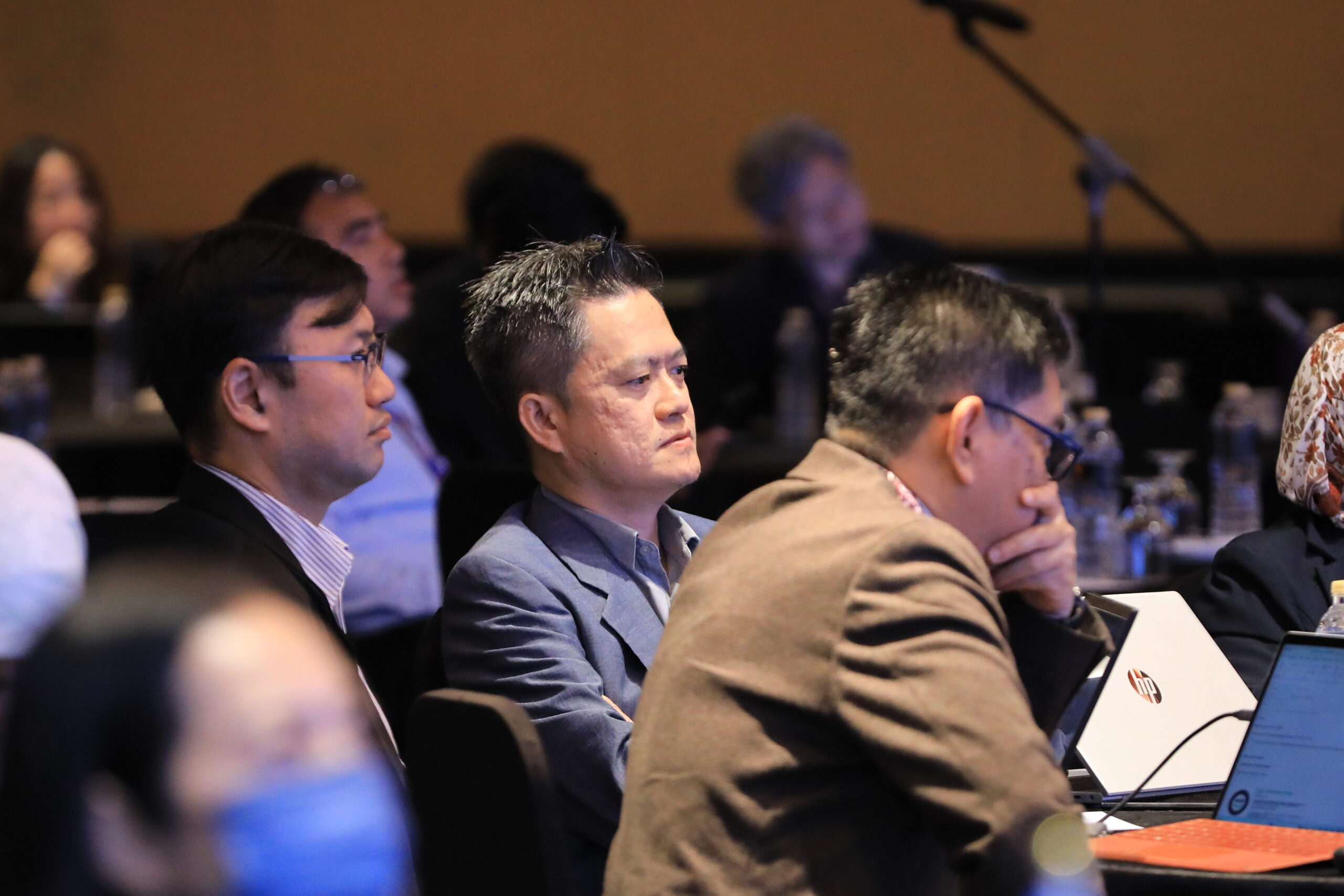 |
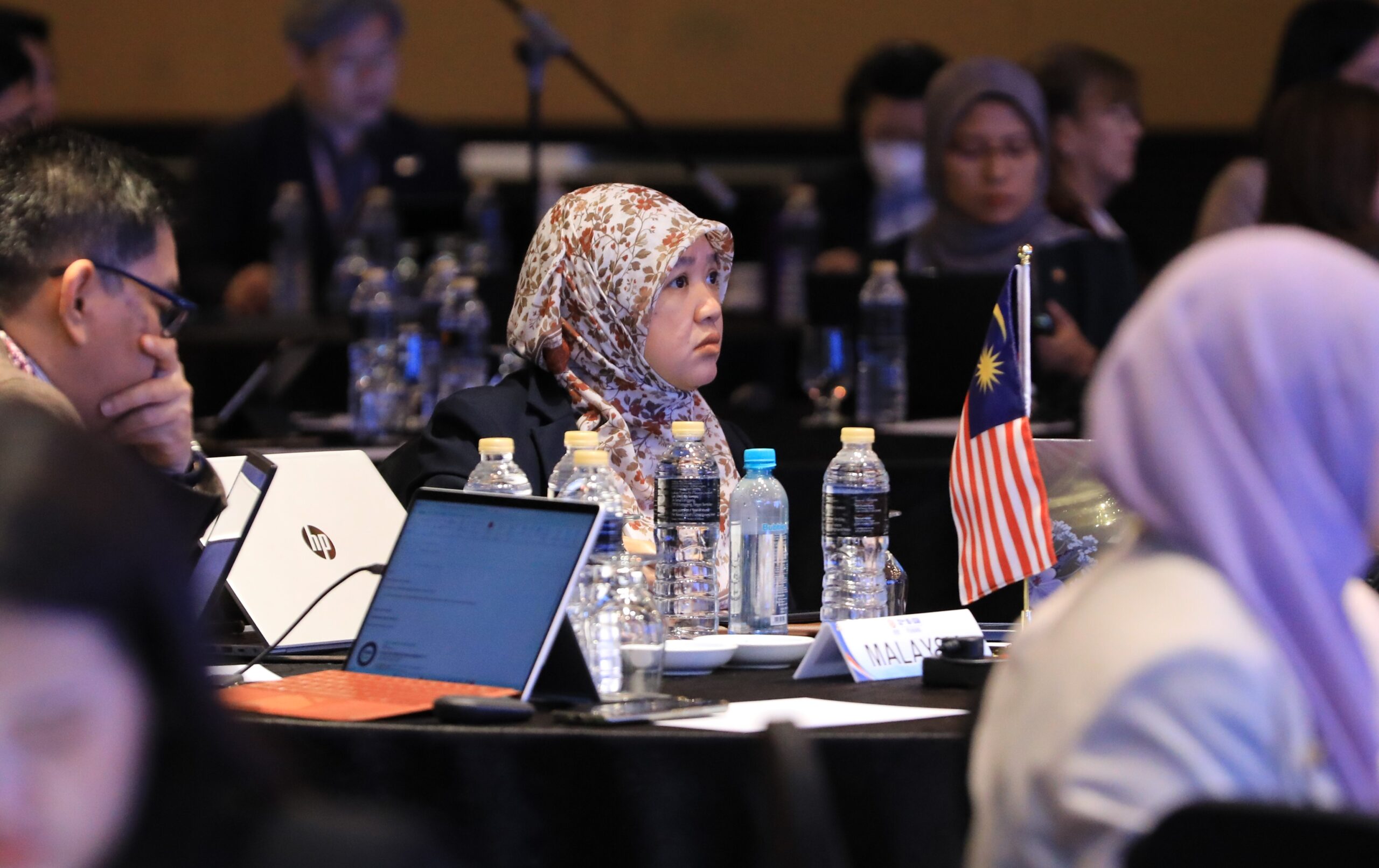 |
Photo 3. Workshop Participants during the First Session.
(Photos by PETRA)
During the subsequent discussion, member states provided key feedback on the path forward. Lao PDR conveyed that while the country is still considering RECs, the idea of setting a national REC projection was considered as a possibility. Malaysia added that while a fully standardised regional REC market in ASEAN is not yet established, important bilateral efforts are already underway through the APG, such as the recent renewable electricity and REC exports to Singapore under Cross-border Electricity Sales (CBES) scheme. Malaysia further suggested that formal collaboration and data sharing between RE-SSN and Head of ASEAN Power Utilities/ Authorities (HAPUA) would be vital to integrate the REC market directly with the APG’s development.
Session 2: ASEAN’s Biofuel Market Potential, Intra-trade Opportunities, and Transport Decarbonisation
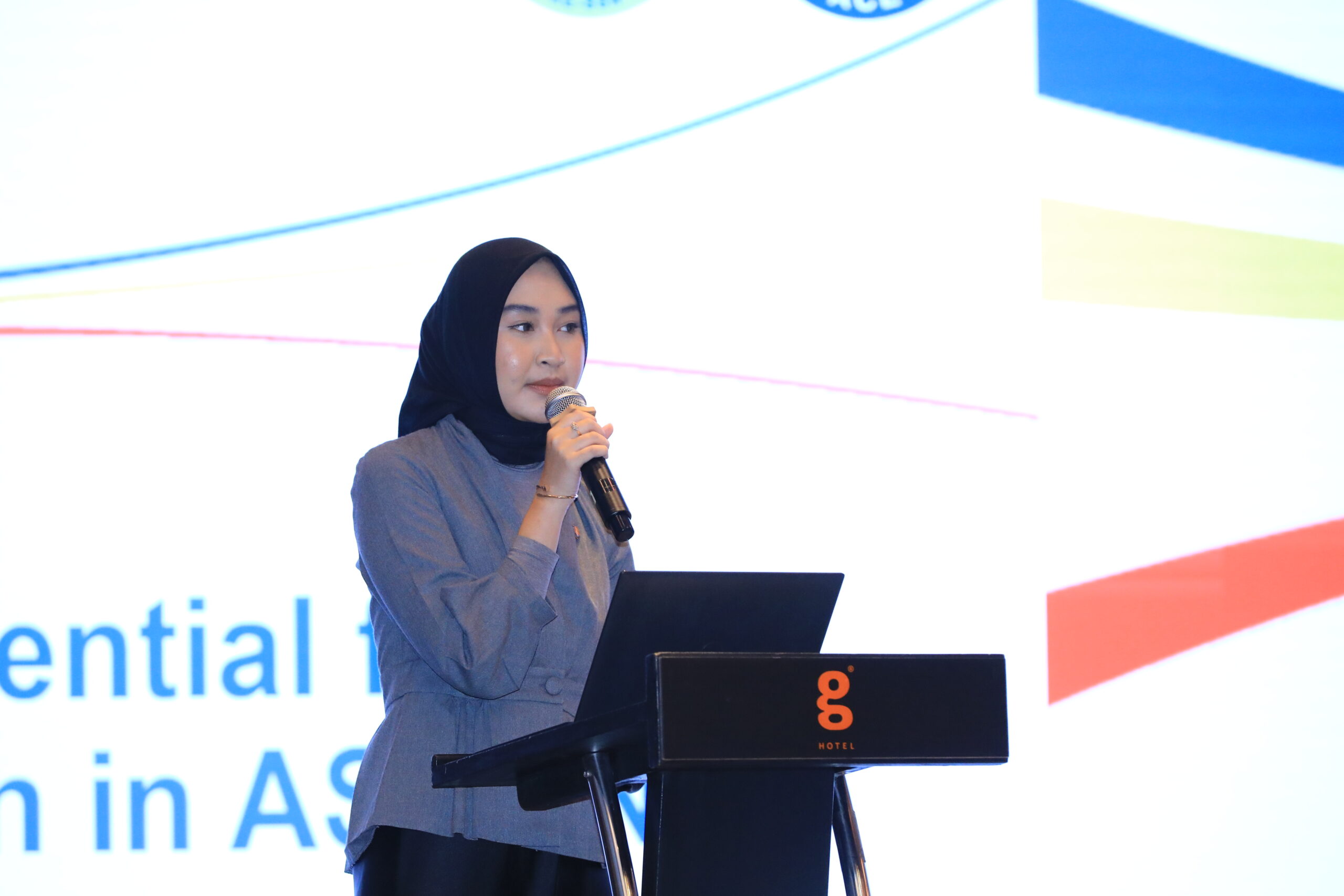
Photo 4. Zahrah Zafira, Research Analyst of SRE Department at ACE.
(Photo by PETRA)
In the second session, also moderated by Monika, the presentations highlighted ASEAN’s biofuel market potential and intra-trade opportunities, with emphasis on transport decarbonisation in aviation and maritime sectors.
Zahrah Zafira, Research Analyst of the SRE Department at ACE, outlined Projections of ASEAN’s Sustainable Transport and Mapping of Potential Biofuel Trade Flow. Her presentation noted how ASEAN’s rising energy demand will also affect the region’s growing need for biofuels. While biodiesel supply is strong, especially from Indonesia and Malaysia, ethanol and Sustainable Aviation Fuel (SAF) face production gaps due to feedstock limitations and policy disparities. She underscored the need for regional cooperation, including harmonised standards, certification, and infrastructure, to unlock the potential of intra-ASEAN biofuel trade and strengthen energy security, reduce import dependence, and support a greener transport future.
Following Zahrah’s presentation, Gabriel Ho, CEO of Energy Connect, gave an overview of Biofuel Market Potential and Growth Trends in Aviation and Maritime. His presentation covered recommendations to accelerate the adoption of SAF and marine biofuels in ASEAN.
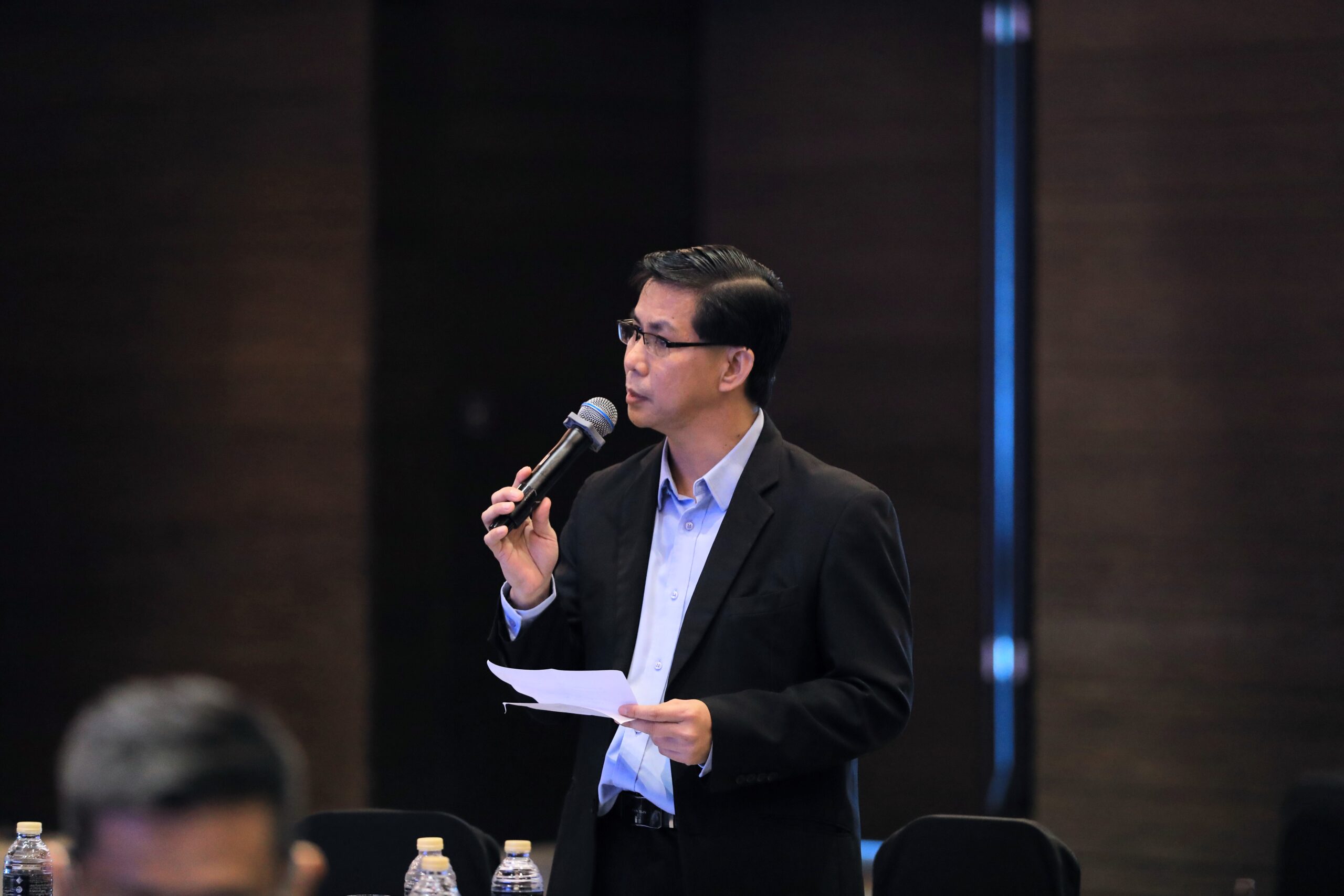 |
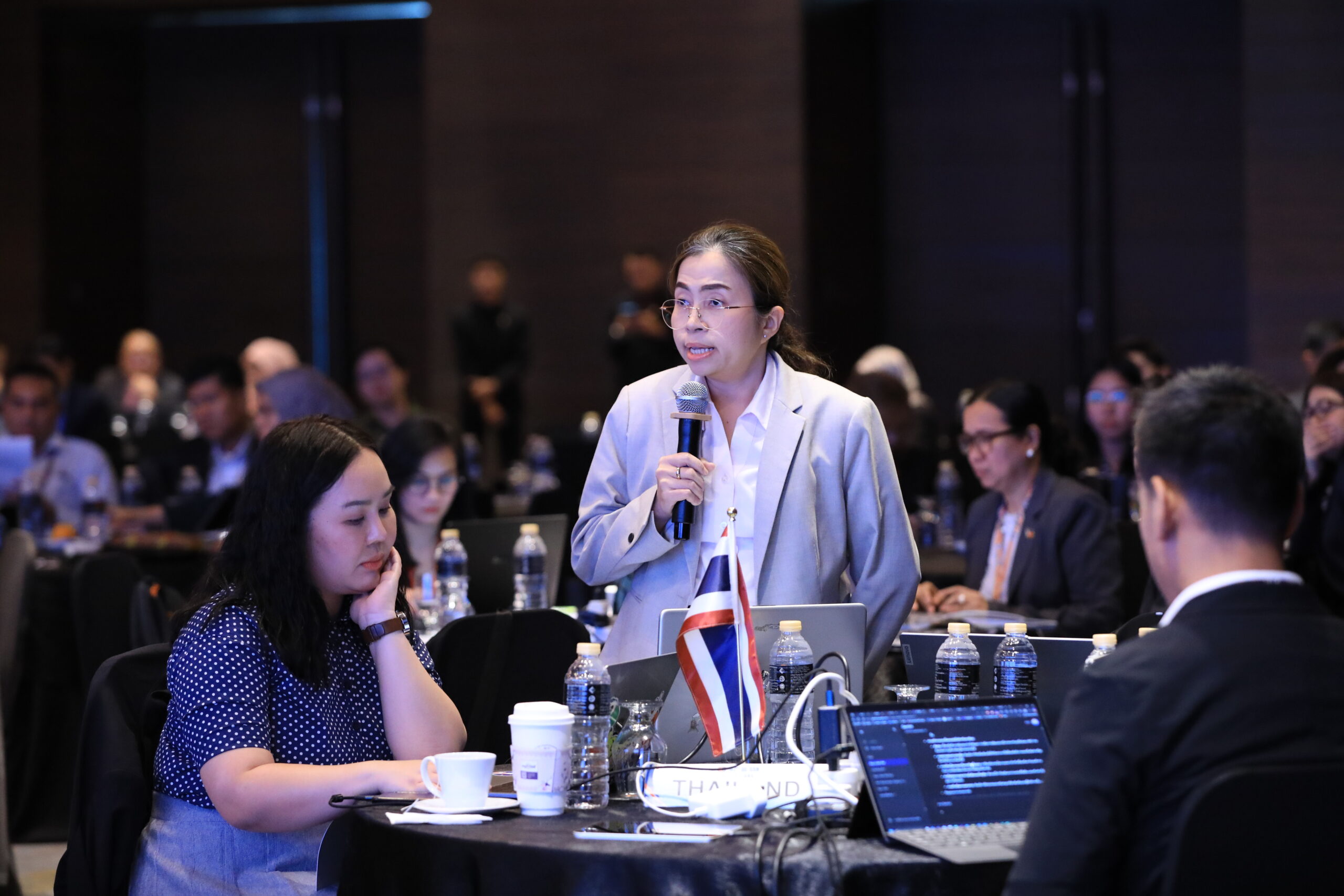 |
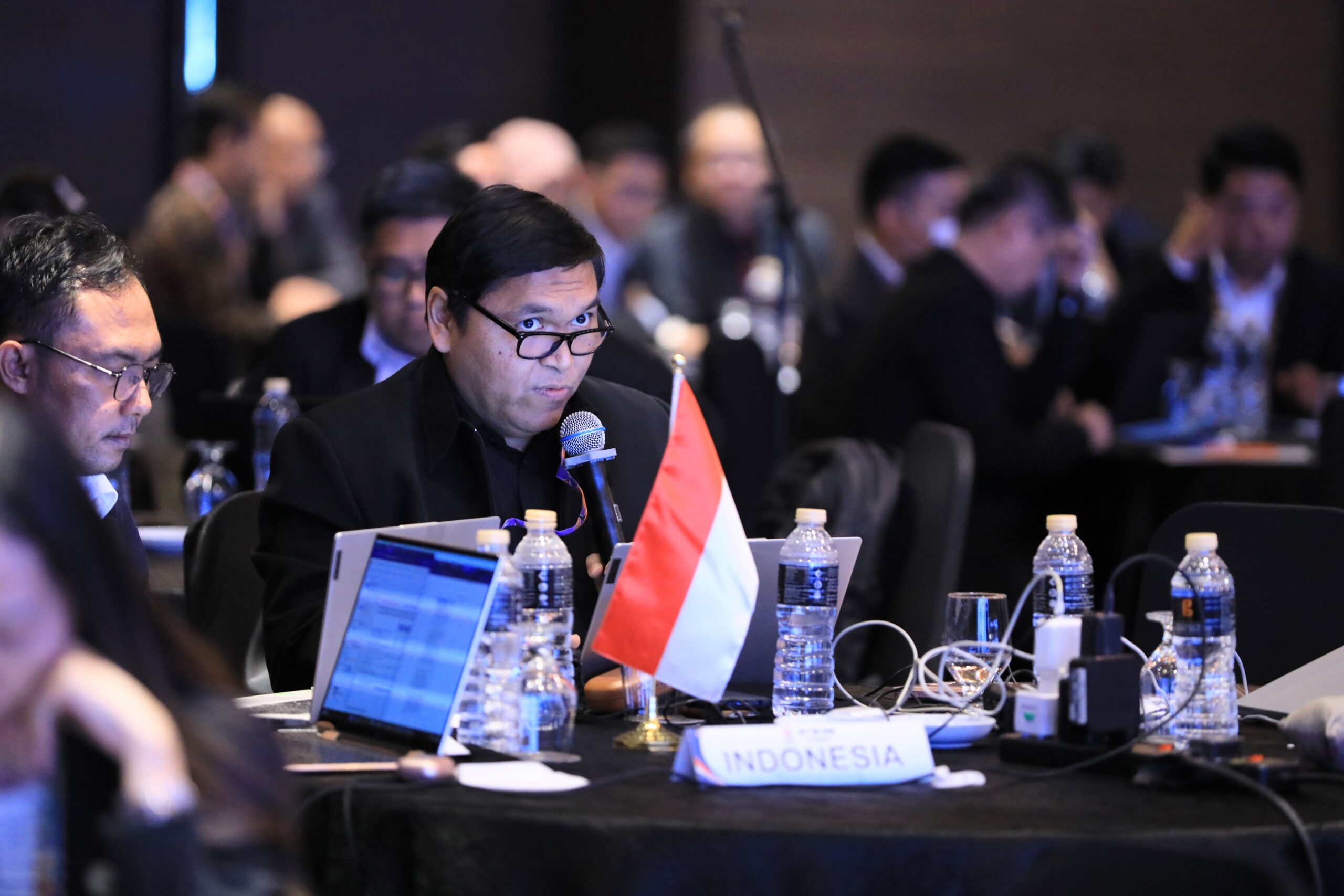 |
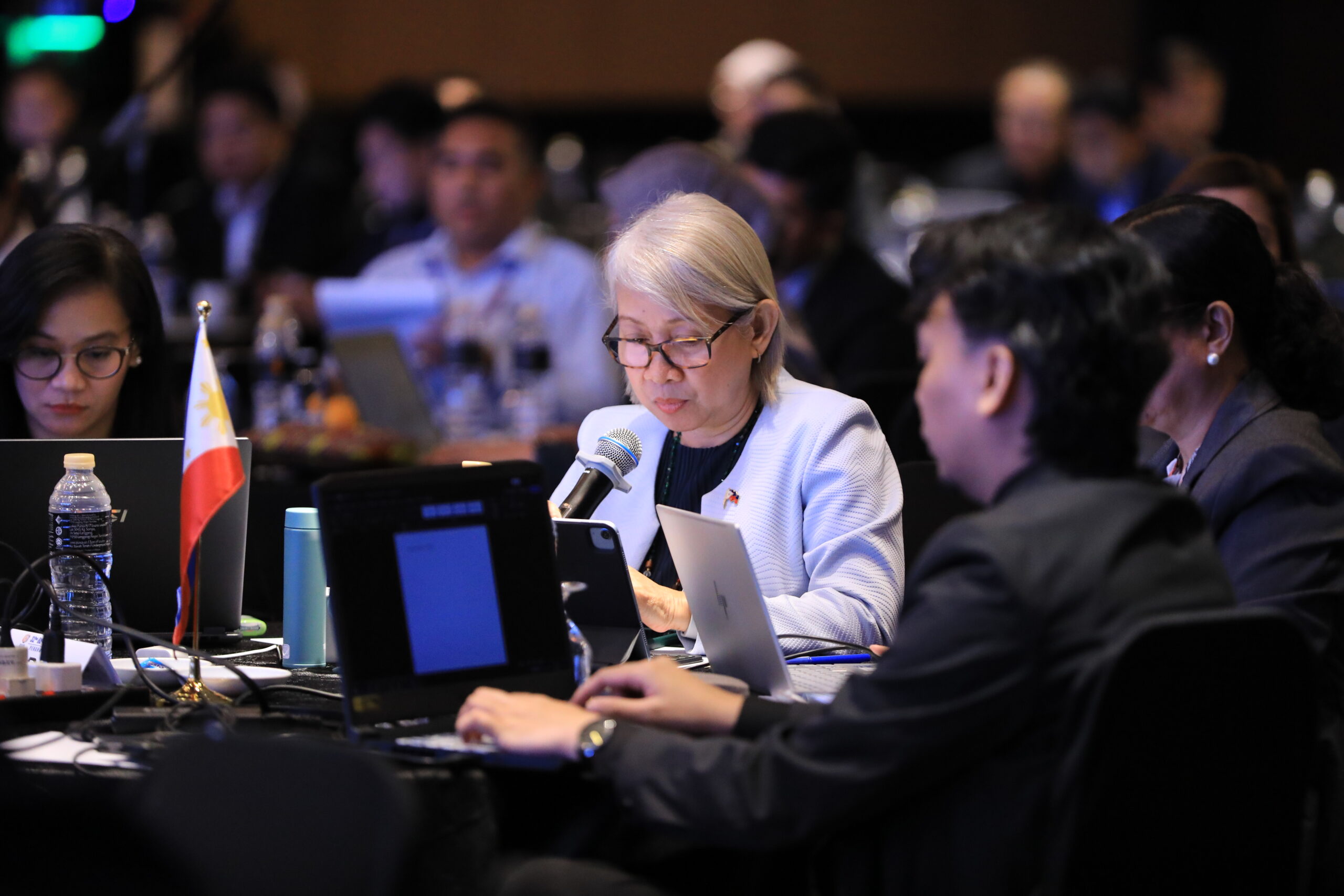 |
Photo 5. Dr Sang Yew Ngin, Undersecretary of Biomass and Biofuel Division at Ministry of Plantation and Commodities of Malaysia (top-left), Dr Chanettee Sikhorn, Scientist Professional Level of Energy Research Division at DEDE of Thailand (top-right), Trois Dilisusendi, Investment and Cooperation Coordinator of Directorate General of New and Renewable Energy and Energy Conservation at Ministry of Energy and Mineral Resources of Indonesia (bottom-left), and Ruby de Guzman, Director of Renewable Energy Management Bureau at Department of Energy of Philippines (bottom-right) sharing their perspectives during the session.
(Photos by PETRA)
The delegates’ insights from Indonesia, Malaysia, the Philippines, and Thailand helped contextualise the practical steps needed to scale sustainable biofuel trade and overcome market barriers:
Session 3: Developing a Strategic RE Target Setting for ASEAN
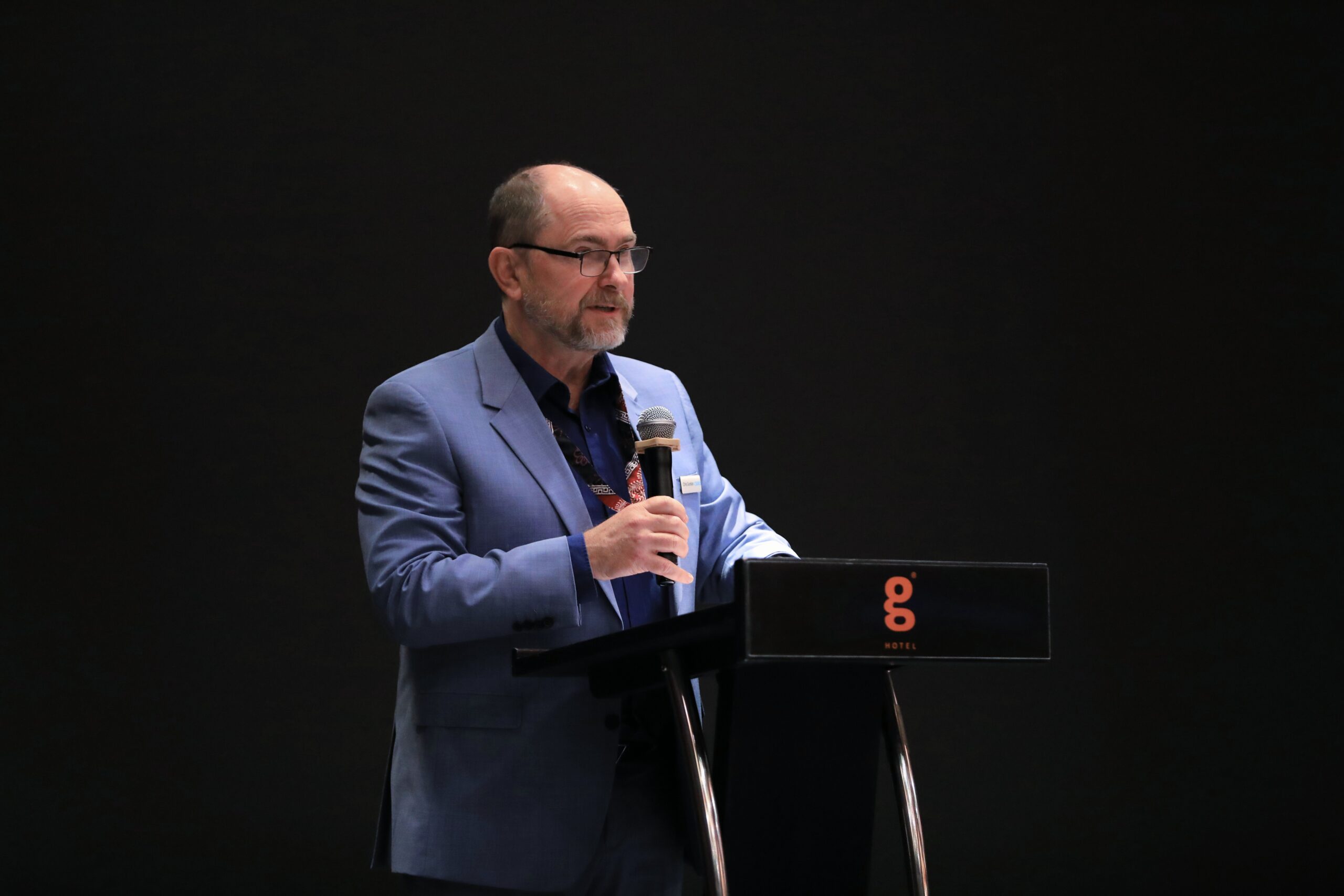 |
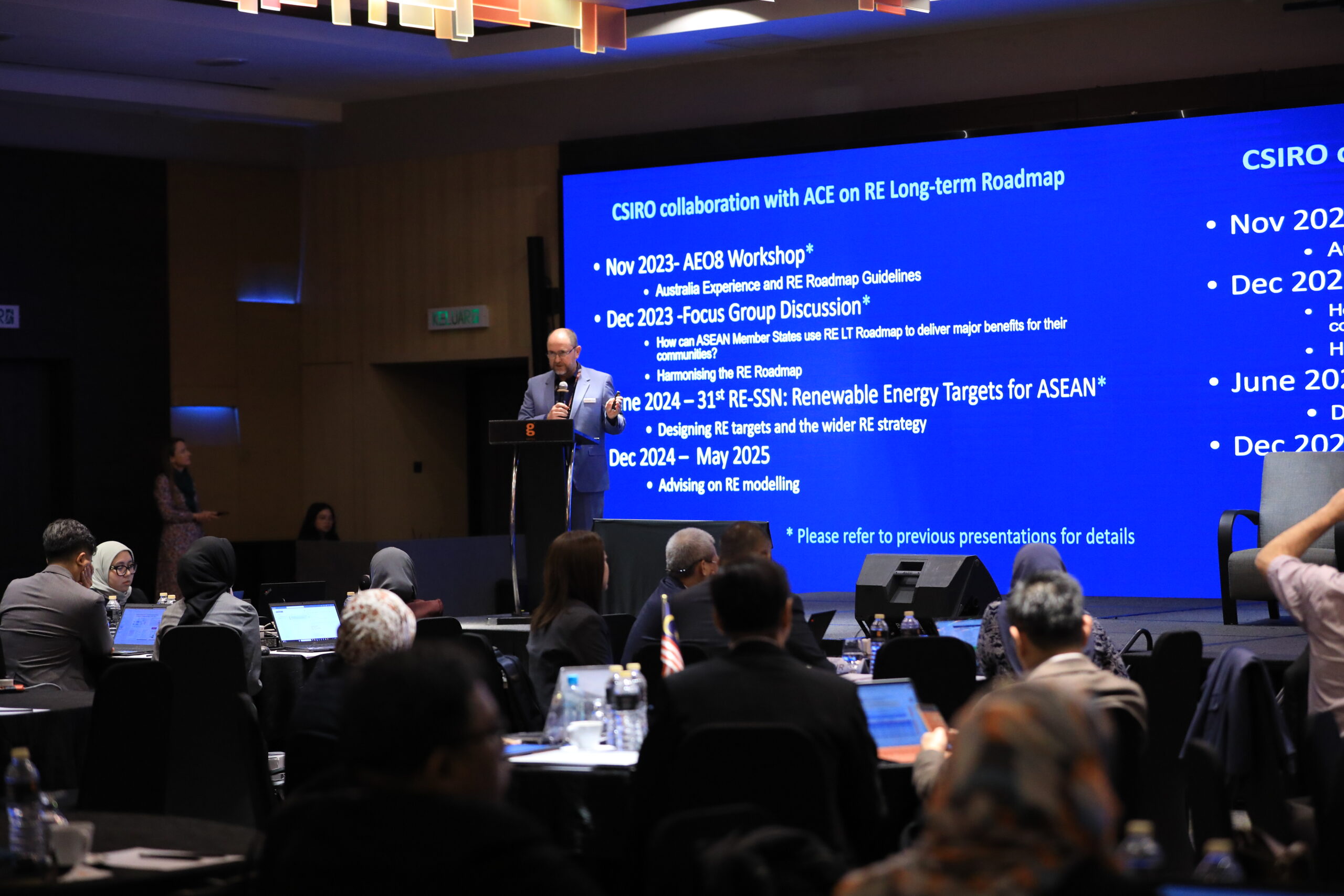 |
Photo 6. Chris Dunstan, Energy Strategy Leader of CSIRO, leading the session.
(Photos by PETRA)
The third and final session examined strategic RE target setting for the region. Drawing on international experiences presented by CSIRO, participants reflected on how ASEAN might define an ambitious yet realistic regional RE target that supports both national energy goals and the ASEAN Economic Community. CSIRO representatives Chris Dunstan, Energy Strategy Leader and Amelia Fyfield, Director of Southeast Asia led an interactive session that invited participants to share their insights on what the most important objectives are for developing RE, as well as what their country’s top priority strategy in RE development are. These included aspects such as monitoring, evaluation, and national targets. Using a live survey, participants identified “reducing climate change” and “energy security” as the most critical objectives for a regional strategy, and a “framework for assessing new technology potential and cost” as the most useful tool for a regional roadmap.
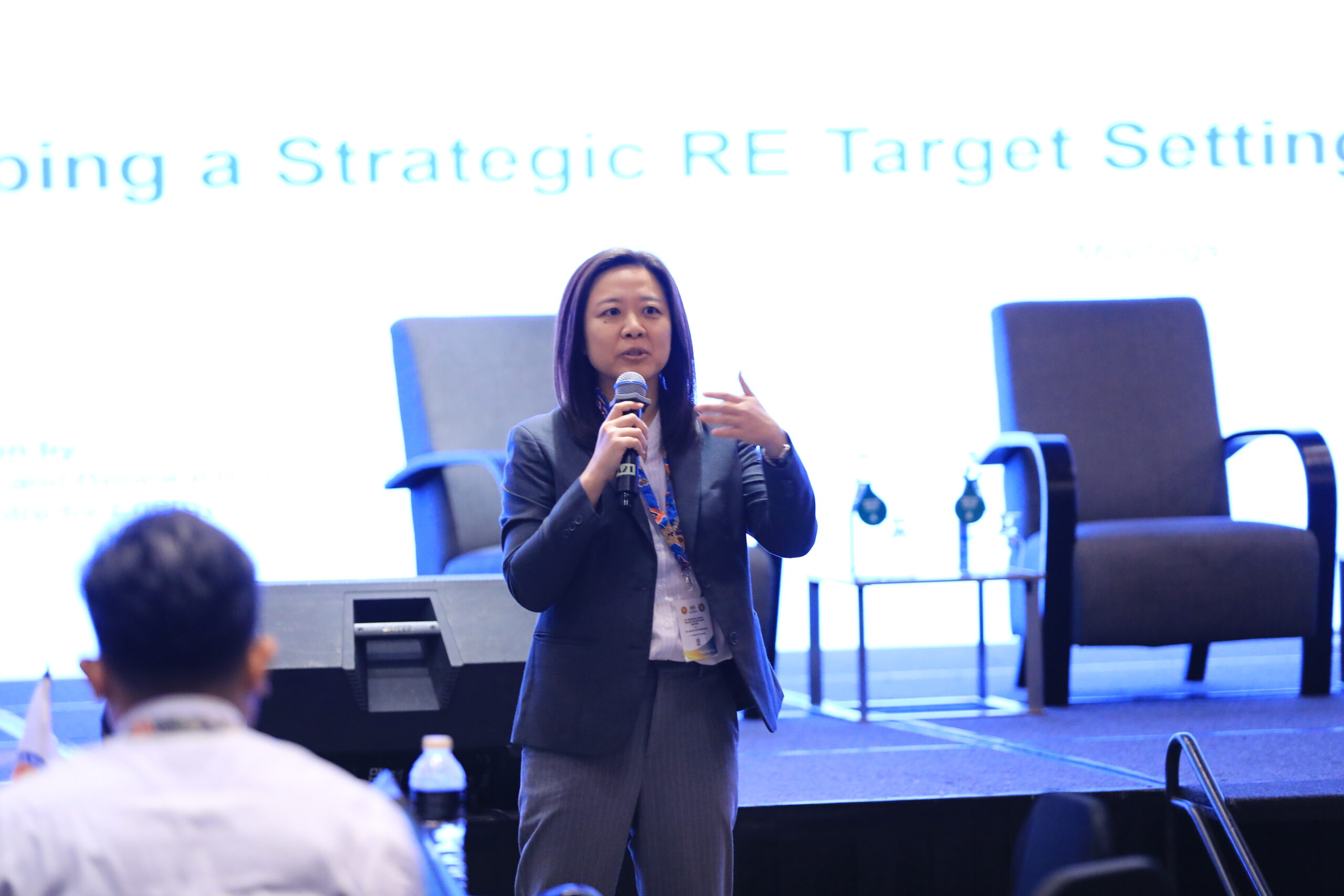
Photo 7. Dr Tharinya Supasa, Head of SRE Department at ACE, leading the closed session with RE-SSN focal points.
(Photo by PETRA)
In the second portion of session three, the workshop proceeded with a closed discussion among RE-SSN focal points. Led by Dr Tharinya Supasa, Head of SRE Department at ACE, the discussion tackled the topic surrounding the RE targets for the next phase of the APAEC, referring to the preliminary findings and scenarios of the RE Long-Term Roadmap (RE LTRM).
The session focused on determining the new regional RE target to be proposed to the Senior Officials Meeting on Energy (SOME). To facilitate this, ACE presented the preliminary findings of RE LTRM, providing a data-driven reference for the RE-SSN to select a new, more ambitious target. Crucially, besides suggesting potential numbers, ACE also presented the corresponding “packages” of actions required to achieve each level of ambition, including measures like deeper APG coordination, robust REC trading, and regional intra-biofuel trade.
The workshop concluded with a landmark agreement among the RE-SSN delegates. They achieved a strong consensus to collectively endorse and put forward a more ambitious regional RE target. This unified position, demonstrating a region ready to be bolder and more solid in its commitments, will form the official recommendation of the RE-SSN to be carried forward to the 43rd SOME for their consideration and subsequent endorsement, positioning ASEAN to confidently pursue a new level of shared ambition in its clean energy journey.
